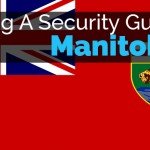Security Guard Roles and Duties in Canada

The security industry is one of the fastest growing industries in North America, as private policing enjoys an increasingly public role. According to a recent Statistics Canada survey, there are more Security Guards working in Canada today than police officers. In 2006, there were about 102,000 private security personnel in Canada, compared to 68,000 police officers, representing about 3 private security personnel for every 2 police officers. Security guards made up 90% of private security personnel.
In Canada, Security guards protect people, property and information. The duties and responsibilities of a guard are extremely varied from site to site. In order to satisfactorily undertake these responsibilities, a security guard must understand the importance of the position and the general duties that a Security Guard may be asked to play on a day to day basis. Guards must be well attuned to changes and developments within the industry and the expectations and obligations that are owed to the client, the public, and his or her employer.
Security guards primarily maintain order and enforce regulations at public events and within establishments, protect property against theft and vandalism, provide armoured car service for transporting valuables, and control access to venues. Security guards also tend to be directly employed by security companies. Other major employers include public administration; the arts, entertainment and recreation industry; transportation and warehousing; health care and social assistance; and, accommodation and food services.
Security guards are often used in the patrol of shopping malls, airports, sports stadiums and other private spaces where the public tends to congregate. Acting on behalf of property owners, security guards have the same criminal law enforcement powers as ordinary citizens, and are legally able to arrest and detain individuals. In 2006, the Law Commission of Canada noted that trespass laws, in particular, are frequently used by private security since most provincial trespass statutes empower owners and their agents (i.e. security guards) or police officers to arrest trespassers.
Criminal activity is not decreasing in frequency. Police agencies are expected to do more with fewer resources. The widening gap between police service and demand must be filled with something, and, based on the experiences of the last few decades in the United States, presumably it will be filled by private policing. While it is doubtful that a security guard would ever be called on to duplicate the extensive duties of a police officer, it is possible to imagine private security facing increased responsibilities under the guidance and tutelage of the police.










2 comments on Security Guard Roles and Duties in Canada
poasa lauvili">poasa lauvili
Ileke the program
Brooklyn Martin">Brooklyn Martin
In the busy and advanced country like Canada each every sector like bank, shopping mall, commercial buildings, other corporate sectors, construction sites, and residential apartments need security services for protection. So according to me it is one of the responsible job as a security guard has to provide protection to all, from celebrity to common people, from simple residential apartments to IT compant.